Facial Feminization Surgery (FFS) in South Africa
Search and Compare the Best Clinics and Doctors at the Lowest Prices for Facial Feminization Surgery (FFS) in South Africa

Find the best clinics for Facial Feminization Surgery (FFS) in South Africa
No pricing info available
Thailand offers the best prices Worldwide
Price: $ 1,945
Dr Dawid Potgieter, located in Syfred Douglas St, Cape Town, South Africa offers patients Facial Feminization Surgery (FFS) procedures among its total of 90 available procedures, across 1 different specialties. Currently, there's no pricing information for Facial Feminization Surgery (FFS) procedures at Dr Dawid Potgieter, as all prices are available on request only. All procedures and treatments are undertaken by the lead specialist at the Hospital, and they have multiple recognized accreditations, including: HPCSA - Health Professions Council of South AfricaDepartment of Health, Western CapeFCS(SA) - Fellowship of the College of Surgeons of South Africa
- Home
- South Africa
Compare Before & After Photos of _procedure_photos.phpFacial Feminization Surgery (FFS)
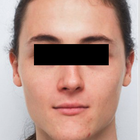
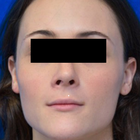
Front view
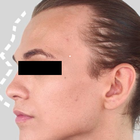
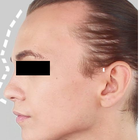
Half-side view
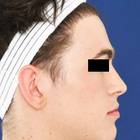
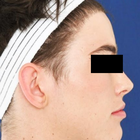
Full-side view
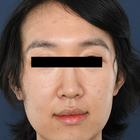
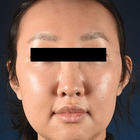
Front view
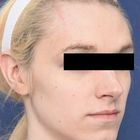
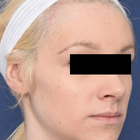
Half-side view
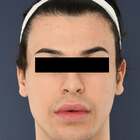
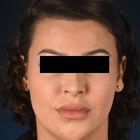
Front view
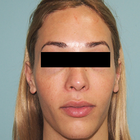
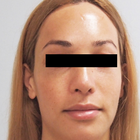
Front view
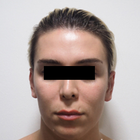

Front view
WHY US?
At Medijump, we're making medical easy. You can search, compare, discuss, and book your medical all in one place. We open the door to the best medical providers worldwide, saving you time and energy along the way, and it's all for FREE, no hidden fees, and no price markups guaranteed. So what are you waiting for?

Free

Best Price

Widest Selection

Risk-Free
What you need to know about Facial Feminization Surgery (FFS) in South Africa
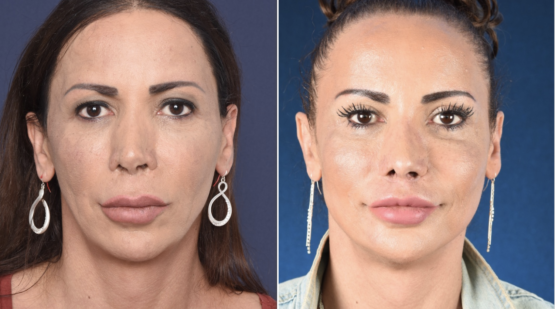
Facial Feminization Surgery, often abbreviated as FFS, is an extensive surgical process designed to modify masculine facial characteristics into a more feminine appearance. The procedure comprises several surgeries including rhinoplasty, forehead recontouring, and jaw and chin modifications. FFS is frequently sought after by transgender women desiring to more authentically express their gender identity. Any potential patient is advised to consult with a licensed surgeon to personalize the surgical plan according to their specific needs and aspirations.
Facial Feminization Surgery (FFS) usually necessitates an exhaustive pre-procedure assessment. This involves a thorough review of the patient's medical history, a complete physical examination, a psychological evaluation, and possibly facial x-rays. The surgeon will also discuss the aesthetic objectives, benefits, risks, and potential complications of the surgery with the patient. A collaborative decision-making approach is used to ensure patient safety and contentment following the procedure.
In this before and after example, the patient underwent Rhinoplasty, Chin recontouring, Jaw reduction, Lip lift, and eyelid surgery (blepharoplasty). The photo is taken 4 months post-op.
What is the cost of Facial Feminization Surgery (FFS) in South Africa?
Various elements such as the surgical complexity, hospital stays, anesthesiologist costs, and surgeon's fees influence Facial Feminization Surgery (FFS) pricing in South Africa. On average, possible charges vary from $20,000 up to $50,000. A detailed price breakdown from your healthcare provider will provide an exact view of the cost details.
The value of the procedure does not necessarily need to compromise the quality and standards of the surgery. Gain clarity about what components are inclusive and exclusive in the overall cost to understand thoroughly what your payment encompasses. Insurance firms usually do not cover aesthetic procedures, hence comprehensive knowledge and prudent financial preparation will streamline the procedure and make the Facial Feminization Surgery (FFS) a valid investment in enhancing your self-perception and assurance.
What does a Facial Feminization Surgery (FFS) Procedure Involve?
Facial Feminization Surgery (FFS) entails a range of tailored techniques aimed at personal needs with a focus on feminizing and gently modifying the facial structure. These techniques may encompass forehead reshaping, adjustments to the jaw and chin, rhinoplasty, facelifts, and other unique enhancements. The rising trend in health and well-being-oriented medical research is mirrored in personalized surgery schemes, ensuring the outcomes are attuned to individuals.
Normally, a care center will execute an in-depth consultation process to comprehend your aesthetic aspirations and draft a surgical blueprint. This evaluation is essential in harnessing the maximum advantages from the Facial Feminization Surgery (FFS). Ensuring the health and safety of the patient, a pre-operative assessment, encompassing a review of physical health and mental well-being, is a crucial measure.
How Long Should I Stay in South Africa for a Facial Feminization Surgery (FFS) Procedure?
During the planning phase for Facial Feminization Surgery (FFS), considering the necessary time for the operation and subsequent recovery is vital, in order to ensure a seamless return to standard duties. The length of your South Africa visit is heavily influenced by the surgery’s intricacy, your personal health condition, and your recovery speed. Generally, a timeframe of one to two weeks is advised before getting back to everyday activities.
However, the precise timeline can differ considerably, with follow-up meetings commonly arranged during your stay. These are paramount for evaluating your progress and identifying any possible surgical complications. This window also presents a chance for practising respiratory exercises and other preventive health methods to expedite a seamless recovery. Adherence to all the instructions given by your surgeon during this term is critical, as this significantly influences the success rate of the Facial Feminization Surgery (FFS).
What's the Recovery Time for Facial Feminization Surgery (FFS) Procedures in South Africa?
Recovery from Facial Feminization Surgery (FFS) can differ among individuals, largely depending on the procedure's scope and the patient's overall health. Usually, patients require approximately six weeks of recuperation before they can engage in strenuous activities. During this time, individuals may experience swelling, bruising, and discomfort related to the surgery, but these symptoms typically diminish over time.
Getting plenty of rest, maintaining adequate hydration, and consuming a balanced diet can aid in accelerating recovery. It's vital to strictly follow the healthcare provider's advice regarding prescribed medicines, care of surgical wounds, and limitations on activities to prevent complications and promote healing. Keep in mind that health and well-being extend beyond the surgical procedure itself, so comprehensive aftercare is essential for successful outcomes.
What sort of Aftercare is Required for Facial Feminization Surgery (FFS) Procedures in South Africa?
Appropriate aftercare is a vital component of successful Facial Feminization Surgery (FFS) and significantly influences the recovery process. It may include prescribed medications, regular medical check-ups, custom-made nutrition plans, and effective weight management. The recovery phase could span several weeks, during which adequate rest is paramount for a seamless recuperation.
Patients are often advised by their surgeons to temporarily abstain from rigorous physical activities and to maintain a healthy lifestyle. The latter should incorporate balanced nutrition, staying hydrated, taking supplements, and ensuring proper sleep and mental health management. It's important to note that adherence to the prescribed aftercare plan and attendance at follow-up visits are key to tracking improvements and promptly addressing any potential complications.
What's the Success Rate of Facial Feminization Surgery (FFS) Procedures in South Africa?
Facial Feminization Surgery (FFS) is recognized as an extremely successful surgery that produces transformative and enduring outcomes. The success rate fluctuates depending on various factors, including the proficiency of the surgeon, the overall health of the patient, and the quality of care after the surgery. A majority of patients report high levels of satisfaction, citing increased self-confidence and an enhanced quality of life.
It's important to understand, however, that despite its high success rate, the procedure isn't without potential risks and complications. Complications like infections, scarring, and dissatisfaction with the aesthetic outcome are potential, though they are rare occurrences. Thorough pre-operative evaluations, skilled surgical hands, and comprehensive post-operative care significantly lessen these risks. Consequently, when selecting the most suitable protocol for your Facial Feminization Surgery (FFS), the guiding factors should be patient safety and satisfaction.
Check out this video for before and after images of FFS patients, you'll be amazed by some of the results made possible by this surgical procedure.
Are there Alternatives to Facial Feminization Surgery (FFS) Procedures in South Africa?
Bear in mind that each person's needs and preferences are distinct, and surgical interventions might not be the most suitable route for everyone. There are other alternatives available for those who might be more inclined towards non-surgical solutions. Aesthetic treatments like injectable fillers, Botox, and others can simulate some effects of the Facial Feminization Surgery (FFS) on a temporary basis. However, cosmetic treatments of this kind typically necessitate ongoing sessions to preserve the sought after result.
Furthermore, some individuals might prefer to engage in psychological or behavioral therapies that encourage self-acceptance and a positive body image. Such therapies address the mental health components of self-image and gender dysphoria, offering a different perspective to surgery. Having open-ended discussions with healthcare providers to explore all the available options prior to making a decision is strongly advised.
What Should You Expect Before and After the Facial Feminization Surgery (FFS)?
Prior to undertaking Facial Feminization Surgery (FFS), patients participate in an in-depth consultation process. During this stage, surgeons evaluate the individual's health status, expectations, and motivations to design a treatment program that best meets their needs. Various health screenings may be conducted to verify the patient's physical suitability for the operation.
Post-procedure, initial weeks may bring about some degree of discomfort, swelling, and bruising, which will progressively decrease. Adequate post-procedure care can significantly improve recovery and the ultimate outcome of your Facial Feminization Surgery (FFS). It's crucial to maintain regular communication with your surgeon and promptly report any unusual symptoms. The goal is to ensure a successful surgical procedure followed by a rapid and smooth recovery, guiding you towards a more self-assured version of yourself.
What is the Preoperative Preparation for Facial Feminization Surgery (FFS) in South Africa?
Preparing for Facial Feminization Surgery (FFS) entails addressing both physical and mental aspects to ensure successful surgery and recuperation. Patients undergo comprehensive evaluations involving various diagnostic tests to determine their overall health and suitability for the surgery. Moreover, patients may need to halt tobacco use, moderate alcohol consumption, and adjust certain medications—especially those affecting blood clotting—as these factors could disrupt both the surgical process and healing.
In addition, therapy sessions may be suggested to assist individuals in managing the psychological implications of such a life-changing procedure. A balanced diet is also pivotal in enhancing the body's healing capacity; adopting a healthy eating regimen, such as the Mediterranean diet, and considering suitable nutritional supplements can optimize preoperative preparation. Emphasizing mental wellbeing is another vital aspect of the journey, and implementing stress management strategies can prove beneficial during this period.
What are the Long-term Implications of Facial Feminization Surgery (FFS) in South Africa?
Facial Feminization Surgery (FFS) is often viewed as a long-term commitment that yields lasting and significant transformations. It significantly enhances self-image and self-confidence, leading to a substantial improvement in life quality. Though the changes induced by the surgery are generally unchanging, sustaining a consistent weight and adopting a healthy lifestyle are vital in preserving the results.
It's important to bear in mind that adjusting psychologically is an integral aspect of such a transformative experience. Individual or group therapies can aid in navigating these changes, fostering deep-seated growth and self-understanding following the Facial Feminization Surgery (FFS). Always remember, the success of a procedure goes beyond the physical alteration—it also involves overall wellbeing, health, and a positive life perspective.
Whilst the information presented here has been accurately sourced and verified by a medical professional for its accuracy, it is still advised to consult with your doctor before pursuing a medical treatment at one of the listed medical providers
No Time?
Tell us what you're looking for and we'll reachout to the top clinics all at once
Enquire Now

Popular Procedures in South Africa
Prices Start From $96

Prices Start From $111

Prices Start From $70

Prices Start From $16

Prices Start From $220

Prices Start From $28

Prices Start From $672

Prices Start From $275

Prices Start From $101

Prices Start From $556

Prices Start From $4,377

Recommended Medical Centers in South Africa for Facial Feminization Surgery (FFS)

- Interpreter services
- Translation service
- Religious facilities
- Medical records transfer
- Medical travel insurance
- Health insurance coordination
- TV in the room
- Safe in the room
- Phone in the room
- Private rooms for patients available

- Interpreter services
- Translation service
- Religious facilities
- Medical records transfer
- Medical travel insurance
- Health insurance coordination
- TV in the room
- Safe in the room
- Phone in the room
- Private rooms for patients available

- Interpreter services
- Translation service
- Religious facilities
- Medical records transfer
- Medical travel insurance
- Health insurance coordination
- TV in the room
- Safe in the room
- Phone in the room
- Private rooms for patients available

- Interpreter services
- Translation service
- Religious facilities
- Medical records transfer
- Medical travel insurance
- Health insurance coordination
- TV in the room
- Safe in the room
- Phone in the room
- Private rooms for patients available

- Interpreter services
- Translation service
- Religious facilities
- Medical records transfer
- Medical travel insurance
- Health insurance coordination
- TV in the room
- Safe in the room
- Phone in the room
- Private rooms for patients available

- Interpreter services
- Translation service
- Religious facilities
- Medical records transfer
- Medical travel insurance
- Health insurance coordination
- TV in the room
- Safe in the room
- Phone in the room
- Private rooms for patients available

- Interpreter services
- Translation service
- Religious facilities
- Medical records transfer
- Medical travel insurance
- Health insurance coordination
- TV in the room
- Safe in the room
- Phone in the room
- Private rooms for patients available

- Interpreter services
- Translation service
- Religious facilities
- Medical records transfer
- Medical travel insurance
- Health insurance coordination
- TV in the room
- Safe in the room
- Phone in the room
- Private rooms for patients available

- Interpreter services
- Translation service
- Religious facilities
- Medical records transfer
- Medical travel insurance
- Health insurance coordination
- TV in the room
- Safe in the room
- Phone in the room
- Private rooms for patients available

- Interpreter services
- Translation service
- Religious facilities
- Medical records transfer
- Medical travel insurance
- Health insurance coordination
- TV in the room
- Safe in the room
- Phone in the room
- Private rooms for patients available
Facial Feminization Surgery (FFS) in and around South Africa
About South Africa
South Africa is home to some of the world's most luxurious private game reserves and lodges. Wildlife lovers come here from all corners of the globe in search of the "Big Five": lion, buffalo, leopard, rhino, and elephants. Coral reefs, shark dives, dragon-backed mountain ranges, white-water rafting, and golden beaches lapped by legendary surf breaks are some of South Africa's many other attractions. Traveling around this vast land and touring the vibrant cities, visitors can learn about the nation's turbulent history. Travelers coming to South Africa for medical treatments do so for cost savings, advanced medical technology, and the internationally qualified and skilled doctors. The country welcomes an ever-increasing number of medical tourists each year, many of which travel for Facial Feminization Surgery (FFS) procedures. Medical Tourists travel from all across the globe, particularly from African countries with an inferior healthcare system. Popular destinations include the capital city, Pretoria, neighboring Johannesburg, and the stunning Cape Town.
Popular Parts of South Africa
With more than 57 million inhabitants, South Africa is the world’s 24th most populous nation. It is a multiethnic society with a large variety of cultures, languages, and religions. Known for its exhilarating outdoor adventure, fascinating wildlife, magnificent landscapes, and opulent history makes South Africa a truly magical destination
- Cape Town is the oldest city and the legislative capital of South Africa. This pleasant city has a lot to offer as you can Hike the Table Mountain, take a wine tour, cruise to Robben Island, relax on beautiful beaches, visit District Six Museum, discover Kirstenbosch Botanical Gardens, and watch the Boulders Penguin Colony or shop in trendy markets.
- Johannesburg is the largest and the most populous city. It is changing rapidly into an ultra-modern metropolis. Other than being an urban city, it also boasts a rich history. Tourists can visit the Apartheid Museum to learn more about the country’s difficult past through exhibitions. Other museums such as MOAD and MuseuMAfriCA are also worth a visit to view the city’s art and history.
- Durban is a cosmopolitan city with sunny beaches and charming Afro-Indian culture. There are more Indian nationals residing in this city than any other country outside of India. It is the place to go if you want to see marine life. Visit uShaka Marine World where you can snorkel, dive, and interact with animals.
- Pretoria is a scenic city and you will find various historic buildings with astounding architecture such as the Voortrekker Monument, Union Buildings, and Church Square with its statue of Paul Kruger. Those who are looking for some outdoor activities can explore Pretoria National Botanical Garden and Rietvlei Nature Reserve for some wildlife viewing.
- Kruger National Park is one of the largest national parks and one of the most exciting safari destinations in the world. Here you can view all of Africa’s safari species such as Lion, Elephant, Rhino, Leopard, Buffalo, Hippo, and Giraffe along with more than 100 mammal species and 500 varieties of bird.
Weather and Climate in South Africa
South Africa’s climate is determined by its situation in the Southern Hemisphere’s subtropical zone and between the Atlantic and Indian Oceans. The country is a year-round destination thanks to its varying regional climates. May to September is the Dry Season with little to no rain. The days are mostly sunny, but it gets cold in the evenings and mornings. The average temperature during this season is around 14 °C with June to August as the coldest months. The wet season starts in October and ends in April. There will be occasional short rain showers in the afternoon. The average temperature during the wet season is around 20 °C, but it can also be as high as 35 °C, especially in December, January, and February.
Getting Around in South Africa
The main and the busiest airport in South Africa is the O.R. Tambo International Airport. The airport is located in Kempton Park, near Johannesburg and Pretoria. It serves as the primary domestic and international gateway to and from South Africa. The airport operates flights to other cities in South Africa as well as numerous major cities in the world including London, Singapore, Sydney, Abu Dhabi, and Atlanta. There are also two other major international airports: Cape Town International and King Shaka International. The inexpensive way to travel around the country is by flying with budget airlines such as FlySadair, Kalula.com, and Mango.
South Africa has an excellent infrastructure and is easy to navigate. However, if you wish to visit several cities, expect to have at least one long-distance trip. You can travel around by bus, train, or rental car. There are several long-distance bus companies you can choose, such as Intercape, Translux, and Greyhound. The buses are relatively affordable and safe. They are generally equipped with air-conditioning and an onboard toilet. For short-distance travel, Baz Bus is the best choice. A one-way ticket fare starts at around 500 ZAR.
Although trains are slow, they are less expensive than flights and more comfortable than buses. Shosholoza Meyl long-distance trains serve Cape Town, Johannesburg, Durban, Bloemfontein, and several other major cities. This train is very affordable with tickets costing as low as 400 ZAR for a sleeper train. If you’re looking for a more luxurious train, try the Blue Train which offers comfortable compartments, good food, and wine for around 18,300 ZAR.
Taxis are available to get around major cities. Tourists can hail one directly from the streets. However, since the taxi ranks are not common, it is best to call for one. The base fare can be different in every city, ranging between 11 ZAR to 20 ZAR.
Tourist Visas in South Africa
A valid visa is required if you wish to visit South Africa. Citizens of more than 60 countries can enter and stay for up to 90 days. Other countries not listed in the visa exemption agreement must apply and obtain a visa to the nearest South Africa embassy or consulate. All visitors must hold a passport valid for at least 30 days after the expiration of their intended visit, and the passport must have at least two unused pages.
Additional Information
- Local Currency: South African Rand (ZAR) is the official currency. 1 USD converts to 14 ZAR.
- Money & Payments: Tourists can find ATMs all around the country. Credit Cards are widely accepted. However, since South Africa has a reputation for scams, you should inform your bank about your travel plans to avoid declined transactions. It is also advisable to always bring some cash with you. Tipping is expected here and you can tip around 10% to 15% of the bill in restaurants and cafes and the standard tip in hotels is 10 to 20 ZAR.
- Local Language: There are 11 official languages in the country, including Zulu, Xhosa, Afrikaans, Northern Sotho, Tswana, Southern Sotho, Tsonga, Swazi, Venda, Southern Ndebele, and English. Zulu is the most widely spoken language.
- Local Culture and Religion: As a secular state, South Africa has a diverse religious population. Most of the population follows Christianity. Other religions such as the traditional African religion, Islam, Hinduism, and Judaism are also freely practiced.
- Public Holidays: The country has 12 public holidays such as New Year’s Day, Good Friday, Freedom Day, and Christmas Day.
Popular Searches
- Plastic Surgery in Thailand
- Dental Implants in Thailand
- Hair Transplant in Thailand
- Breast Augmentation Thailand
- Gastric Sleeve in Thailand
- Gender Reassignment Surgery in Thailand
- Laser Hair Removal in Bangkok
- Botox in Bangkok
- Dermatology in Bangkok
- Breast Augmentation in Bangkok
- Coolsculpting in Bangkok
- Veneers in Turkey
- Hair Transplant in Turkey
- Rhinoplasty in Turkey
- Stem Cell Therapy in Mexico
- Rhinoplasty in Mexico
- Liposuction in Mexico
- Coolsculpting in Tijuana
- Rhinoplasty in Korea
- Scar Removal in Korea
- Gastric Sleeve in Turkey
- Bone Marrow Transplant in India
- Invisalign in Malaysia
- Plastic Surgery in the Dominican Republic
- Tummy Tuck in the Dominican Republic
- Plastic and Cosmetic Surgery in Poland
- Rhinoplasty in Poland
- Hair Implant in Poland
- Dental Implants in Poland
- IVF in Turkey
